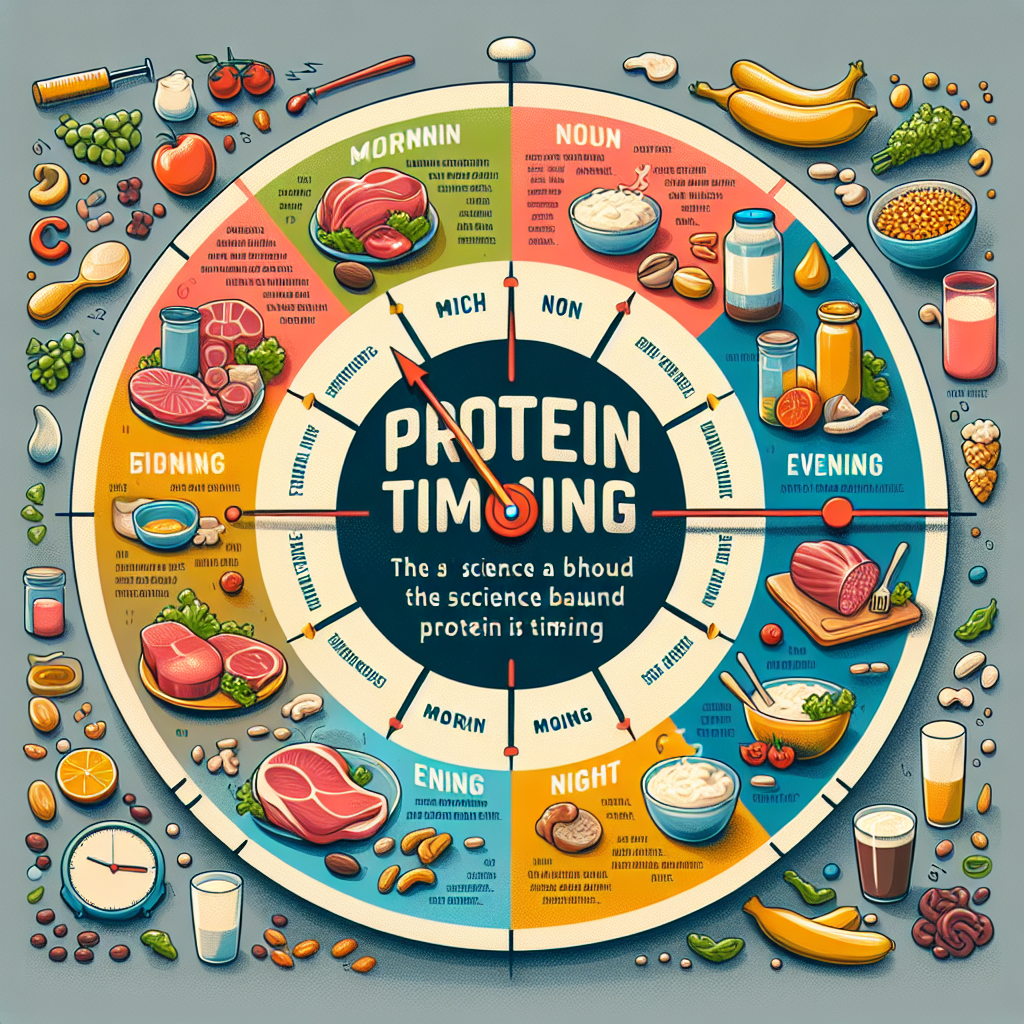Protein Timing Myths: What Science Really Says About When to Eat It
1. Introduction to Protein Timing
Protein intake has always been a vital aspect of nutrition, especially for those striving for muscle gain, weight loss, or improved athletic performance. The debate over when to consume protein is often influenced by various myths and misconceptions. This blog aims to illuminate the science behind protein timing, clarify common myths, and provide practical insights to help you optimize your protein intake.
2. The Anabolic Window Myth
Many fitness enthusiasts believe in the “anabolic window,” which asserts that there is a limited time—often touted as 30 to 60 minutes—post-exercise where protein consumption is crucial for muscle recovery and growth. However, recent research indicates that this window is much broader than previously thought. A study published in the Journal of the International Society of Sports Nutrition in 2017 suggests that consuming protein within 2 to 4 hours after exercise is sufficient for maximizing muscle protein synthesis.
3. Daily Protein Distribution
Another myth is that you should consume the majority of your daily protein in one meal, especially post-workout. However, research suggests that distributing protein intake evenly across meals throughout the day can be more beneficial. A study published in The American Journal of Clinical Nutrition highlighted that participants who distributed their protein intake across four meals daily had better muscle protein synthesis rates compared to those who consumed a large portion in one sitting.
4. The Role of Total Daily Protein Intake
Total daily protein intake is more critical than the specific timing of meals. According to guidelines from various health organizations, athletes generally require around 1.2 to 2.2 grams of protein per kilogram of body weight, depending on their level of activity. For instance, a weightlifter weighing 70 kg might need between 84 and 154 grams of protein per day. Meeting this requirement is vital for muscle maintenance, recovery, and overall health, making it essential to focus on total intake rather than a strict timing schedule.
5. Pre-Workout Protein: A Useful Strategy
While the post-exercise anabolic window may be overstated, pre-workout protein intake has shown to have positive effects on performance and recovery. Consuming protein before a workout can provide amino acids that may help reduce muscle breakdown during the exercise. A study in Sports Medicine found that individuals who consumed protein before training had improved muscle recovery and less muscle soreness. Aim for a balanced meal 1-2 hours before the workout containing protein and carbohydrates for energy.
6. Protein and Sleep
The timing of protein consumption doesn’t end with workouts. The role of protein intake before bed is gaining attention, with emerging studies suggesting that casein protein, which is a slow-digesting dairy protein, can help with overnight muscle recovery. Research has shown that consuming protein before sleep may improve overnight muscle protein synthesis, offering potential benefits for body composition and strength. A serving of casein protein approximately 30 minutes to an hour before bed can be an effective strategy.
7. The Importance of Protein Quality
Myths often surround not just when to eat protein but also the quality of protein. High-quality protein sources, which contain all essential amino acids, are crucial for muscle growth and recovery. Animal-based proteins like lean meat, fish, eggs, and dairy products generally boast a higher biological value than many plant-based sources. However, vegetarians and vegans can achieve sufficient protein quality by combining different plant protein sources, such as rice and beans or hummus and whole-grain pita.
8. Individual Differences in Protein Needs
It’s critical to understand that protein needs can vary significantly among individuals based on several factors, including age, sex, physical activity level, and muscle mass. For example, older adults may require more protein to counteract muscle loss that comes with aging (sarcopenia). The recommended intake for older adults often rises to 1.2 grams per kilogram of body weight. It’s essential to personalize your protein intake based on your unique circumstances rather than adhering strictly to generalized recommendations.
9. Conclusion: Focus on Overall Nutrition
In conclusion, while myths about protein timing can lead to confusion, the science behind effective protein consumption emphasizes flexibility and total daily intake over strict timings. Prioritizing high-quality protein sources, distributing intake throughout the day, and addressing individual needs is more effective for optimizing health and performance. By shifting focus from when to eat protein to how much and the quality, you create a more sustainable and health-focused approach to nutrition. Whether you’re an athlete or someone looking to maintain a healthy lifestyle, understanding these principles can help you achieve optimal results.
Remember, nutrition is not one-size-fits-all. Tailor your protein intake strategy to fit your specific needs, and watch your health and fitness improve as a result.




Post Comment